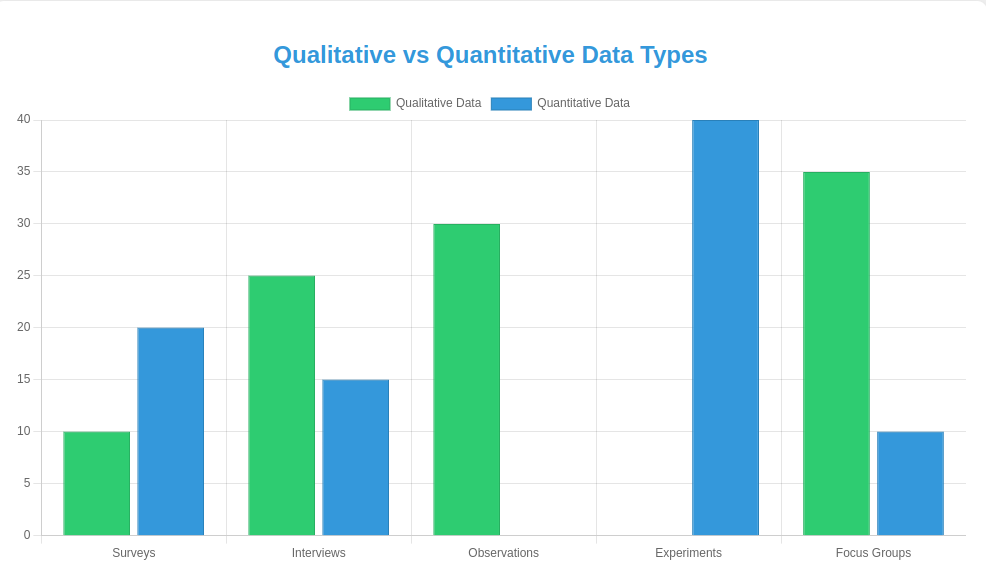In today’s data-driven world, businesses rely on analytics to make smarter decisions, solve problems, and stay competitive. As a result, the demand for skilled business analytics professionals has skyrocketed across industries. But what are hiring managers really looking for in candidates?
Beyond technical expertise, they value professionals who can analyze data, interpret results, and communicate insights effectively to drive business impact.
In this blog, we’ll explore the top business analytics skills you need to master to stand out in this rapidly growing field.
Key Business Analytics Skills That Hiring Managers Value
Want to impress hiring managers? Here are the skills you need:
1. Data Analysis and Interpretation
What It Is: Data analysis involves examining datasets to find patterns, trends, and insights. Interpretation adds another layer, turning this discovery into practical advice.
Why It Matters: Now, as companies generate tons of data every second and, analysts are the ones who need to translate this tonnes of data into meaningful insights. From customer behaviour to market trends to operational performance, data analysis leads to more informed decision-making.
How to Build This Skill?
- Master Data Tools: Learn and practice essential tools like Excel, SQL, Python, and R. These are widely used for data manipulation, cleaning, and analysis in the industry.
- Work with Real-World Data: Use open datasets to practice identifying patterns, trends, and insights. Websites like Kaggle and UCI Machine Learning Repository provide great datasets to start with.
- Focus on Statistics and Visualization: You need to know basics of statistics in order to integrate trends and correlations. Explore tools for visualization (Tableau, Power BI) to understand how to showcase data responsibly.
- Solve Business Problems: Apply your skills to practical problems, like creating dashboards or analyzing business scenarios, to gain experience and showcase your work in a portfolio.
- Get started with free courses.
Enroll in a business analytics course that includes hands-on projects to sharpen your analysis skills. A program like the Online Data Science and Business Analytics Course is a great starting point.
2. Statistical Knowledge
What It Is: Statistics is the fundamental pillar of analytics that allows professionals to predict trends, confirm theories and measure relationships between variables.
Why It Matters: Business hiring managers also want candidates who use statistics to predict future outcomes and influence business strategies. For example, skills such as regression analysis, probability and hypothesis testing are quite invaluable.
How to Build This Skill:
- Enroll in Online Courses: Start with basic statistics and gradually move to advanced topics such as multivariate analysis, statistical modeling, and predictive analytics. Platforms like Great Learning offer excellent resources.
- Practical Application: Work on case studies or projects to apply statistical methods in real-life scenarios, such as analyzing sales data or customer behaviour trends.
- Use Statistical Tools: Familiarize yourself with tools like Excel, R, or Python for data manipulation and statistical computation.
- Get started with free courses.
- Statistics for Machine Learning Free Course
- Data Analytics using Excel Free Course
- Introduction to R Free Course
- Python Fundamentals for Beginners Free Course
3. Data Visualization
What It Is: Data visualization is another layer of data analysis which consists in producing charts, graphs and dashboards that are simple to read, attractive to look at and that convey insights.
Why It Matters: Stakeholders often lack the technical expertise to interpret raw data. Visualization bridges the gap, making complex data more understandable and actionable.
How to Build This Skill:
- Learn Visualization Tools: Get hands-on with popular tools like Tableau, Power BI, and Python libraries (Matplotlib, Seaborn, Plotly) to create charts, graphs, and dashboards.
- Focus on Design Principles: Understand concepts like color theory, layout, and data-to-ink ratio to make your visualizations attractive and easy to understand.
- Practice with Real Data: Use publicly available datasets to design dashboards and visual stories that address business problems or highlight key trends.
- Create a Portfolio: Showcase your visualizations by building a portfolio of dashboards and visual projects to demonstrate your expertise to employers.
- Join the free courses and Build This Skill:
Pro Tip: Include visual projects in your portfolio to showcase your ability to tell a story through data.
4. Business Acumen
What It Is: Business acumen is the understanding of how a company operates, its key performance indicators (KPIs), and how analytics impacts business strategy.
Why It Matters: Strong business acumen ensures that data insights are not just numbers but are aligned with the company’s goals. Analysts with this skill can identify opportunities for growth or ways to improve efficiency, making their work more impactful.
How to Build This Skill:
- Understand Industry Basics: Do some research on industry-specific metrics, KPIs, and business models to better understand how organizations track success.
- Learn Strategic Thinking: More than knowing how to develop analytics, you should know how analytics can ensure revenue growth or improve efficiency or customer satisfaction.
- Ask the Right Questions: Get used to asking questions such as, “How does this data align with business goals?” or “Have any actions that this insight can inform?”.
- Study Case Studies: Analyze real-world business scenarios to see how companies use analytics to solve problems and grow.
- Stay Updated on Trends: Follow business news and industry updates to understand market dynamics and emerging opportunities.
5. Communication and Storytelling
What It Is: Hiring managers look for professionals who can explain complex data in a simple, clear way.
It’s not enough to analyze data. You need to communicate your results in a way that resonates with non-technical audiences. Storytelling combines data, visualization, and narrative techniques.
Why It Matters: Hiring managers seek candidates who explain the “why” behind the numbers and persuade stakeholders to act.
How to Build This Skill:
- Practice Storytelling: Regularly share data insights with friends, colleagues, or mentors to refine your delivery and clarity.
- Simplify Complex Ideas: Focus on breaking down technical data into simple, actionable insights that anyone can understand.
- Learn Visualization Tools: Use tools like Tableau or Power Point to create clear and compelling visuals to support your story.
- Enhance Presentation Skills: Work on structuring your presentations with a clear beginning, middle, and end to effectively tell a story. Using an AI presentation maker can also be highly beneficial for creating an efficient presentation.
- Seek Feedback: Present your ideas to diverse audiences and gather feedback to improve clarity and engagement.
6. Technical Proficiency
What It Is: Technical skills are quantitative tools that demonstrate your ability to learn new data analytics and modelling tools, programming languages, etc.
Why It Matters: Technical skills make you versatile, allowing you to handle diverse projects. Advanced skills like machine learning and cloud computing are particularly in demand.
Tools to Learn:
- Master Programming Languages: Focus on Python and R to handle data analysis, statistical modeling, and machine learning.
- Learn Big Data Tools: Get hands-on experience with Hadoop, Spark, or Google BigQuery to work with large datasets effectively.
- Explore Cloud Platforms: Understand how AWS, Azure or google cloud works and data relates to them for object storage and cloud based computing.
- Practice Advanced Techniques: Delve into machine learning, predictive modeling, and automation to tackle complex projects.
- Build Real-World Experience: Work on practical projects and internships to apply technical tools to real business problems.
7. Project Management
What It Is: This involves managing analytics projects efficiently, from setting goals to delivering results.
Why It Matters: Hiring managers value candidates who can handle the entire lifecycle of an analytics project. This includes understanding requirements, prioritizing tasks, and managing timelines.
How to Build This Skill:
- Learn Project Management Frameworks: Learn about Agile and Scrum methodologies on how to efficiently manage tasks and workflows.
- Get Comfortable with Tools: Ensure to use JIRA, Trello or Asana like tools which help you in task grouping, activity prioritization, and project tracking.
- Develop Time Management Skills: Practice creating timelines and schedules to ensure project milestones are met.
- Understand the Project Lifecycle: Gain experience in every stage of an analytics project, from goal setting to delivering results.
- Join the free course offered by Great Learning
Why Do These Skills Matter to Employers?
Employers are looking for candidates who can apply business analytics to drive meaningful results. Here’s why these skills are so valuable:
- Provide Actionable Insights: Companies need professionals who can turn complex data into clear, actionable insights that directly influence business decisions and strategies. By identifying patterns and trends, you help guide the company toward data-driven choices that lead to improved performance.
- Effective Communication: Employers highly value professionals who can bridge the communication gap between technical teams and business stakeholders. Translating complex data into simple, understandable terms allows everyone, regardless of technical knowledge, to make informed decisions based on the findings.
- Leadership in Projects: Employers want candidates who can manage analytics projects from start to finish, ensuring that they meet deadlines, align with business goals, and produce measurable results. These professionals are expected to lead cross-functional teams, prioritize tasks, and deliver successful outcomes that contribute to business growth and efficiency.
Mastering these skills ensures you’re equipped to drive business success and make a meaningful impact on an organization’s growth.
To develop these skills, consider enrolling in a comprehensive business analytics course like the Online Data Science and Business Analytics Course. With expert guidance and hands-on practice, you’ll be well-equipped to meet the expectations of hiring managers.
How to Acquire These Skills?
Developing key business analytics skills starts with quality training. Enrolling in top-rated courses provides hands-on learning, expert guidance, and exposure to industry-standard tools. Here are some of the best programs to help you master these essential skills.
1. Post-Graduate Program in Data Science and Business Analytics by Great Learning
This course is perfect for those who want to combine data science knowledge with business analytics. You’ll gain a thorough understanding of statistical methods, data analysis, and machine learning while learning to apply these techniques in business scenarios.
Program Highlights:
- 12-month program with flexible Learning
- Personalized Weekend Mentorship Sessions.
- Case Studies with Real-World Datasets (Netflix, Uber, Spotify and more)
- 11 hands-on projects and 1 Capstone Project
- 40+ case studies across different industry verticals
- 40+ quizzes (25 graded) for hands-on exposure to 15+ Languages and Tools (Python SQL, Tableau, and More)
- enforcement of conceptual and practical understanding
- World-renowned Faculty and Seasoned Industry Experts
- Dedicated Learning and Career Support
- Resume Review and Interview Preparation Sessions
This program suits professionals looking to switch careers or upskill in data science and business analytics.
2. Post Graduate Program in Data Science and Business Analytics by UT Austin
This program is designed for professionals seeking to build data science and business analytics skills. Learn Python, Tableau, and machine learning techniques like Logistic Regression and Decision Trees.
No programming experience is required, and you’ll be taught by top industry experts and UT Austin faculty to apply these skills to business challenges.
Program Highlights:
- 7-month program with flexible Learning
- Rating: 4.7/5
- Personalized Weekend Mentorship Sessions.
- Curriculum with cutting-edge tools and skills
- Personalized projects as per your industry
- 24*7 Dedicated Program Support
- 7 hands-on projects and 40+ Case Studies
- Weekly interactive mentor-led practice sessions
- Dedicated program support via a program manager
- An opportunity to interact and network with peers
- An E-portfolio to showcase your skills
- Earn a certificate from UT Austin, ranked 3rd for its MS in Business Analytics and 6th for Executive Education Custom Programs.
This business analytics course is ideal for freshers to start their career in data science and business analytics. No programming experience is required with it, it lays a strong foundation in core tools and techniques..
Practical Tips to Impress Hiring Managers
Ready to stand out from the competition? Follow these detailed tips to make a lasting impression on hiring managers:
- Build a Portfolio
- A strong portfolio can showcase your skills and make you more attractive to potential employers.
- Create projects that highlight your expertise in areas like data analysis, data visualization, and problem-solving. For example, build dashboards, predictive models, or conduct analysis on open datasets.
- Make sure to include work from your business analytics course or any personal projects that demonstrate your capabilities.
- Your portfolio should clearly present the impact of your work, such as improved decision-making, cost savings, or better customer insights, to show that you can make a real difference.
- Network with Professionals
- Networking is essential for career growth and uncovering job opportunities that might not be advertised.
- Connect with professionals in the field of data science, business analytics, or any related domain on LinkedIn. Engage in conversations, share your insights, and ask for advice.
- Attend industry events, conferences, webinars, or meetups. These interactions help you stay informed about the latest industry trends and build connections that can lead to job referrals or partnerships.
- Networking can also provide mentorship opportunities, where experienced professionals can guide you through challenges and help accelerate your career.
- Stay Updated
- The world of data science and analytics is constantly evolving with new tools, techniques, and trends. It’s important to stay up-to-date with the latest advancements.
- Learn about the newest tools in the industry, such as machine learning frameworks, AI applications, and big data technologies.
- Follow industry blogs, subscribe to research papers, or take advanced online courses to regularly update your skills.
- Demonstrating knowledge of current industry standards in an interview will position you as a forward-thinking candidate who is ready to contribute to modern solutions.
- Practice Problem-Solving
- Employers are not just looking for theoretical knowledge; they want candidates who can solve real-world problems. The more you practice, the better prepared you will be.
- Participate in hackathons or competitions to test your skills under pressure and tackle challenges that simulate the problems you might encounter in a real job.
- Work on real-world case studies or datasets to develop your problem-solving skills. This will help you demonstrate practical abilities in interviews and showcase your value to potential employers.
- Engaging in problem-solving activities will also sharpen your analytical thinking, helping you approach complex challenges more effectively.
By implementing these tips, you’ll be well on your way to impressing hiring managers and securing your desired job in business analytics or related fields.
Conclusion
Business analytics skills are the cornerstone of success in today’s data-driven world. Employers seek professionals who combine technical expertise with strategic thinking and communication abilities.
By developing these competencies, staying current with industry trends, and building a strong portfolio, you can position yourself as a standout candidate in this competitive field.
Enroll in the business analytics course to master essential business analytics skills and propel your career forward. Build your expertise today and secure your place in the future of analytics!
Frequently Asked Questions(FAQ’s)
Creativity is essential for identifying innovative ways to solve problems, designing compelling visualizations, and crafting stories that resonate with stakeholders. For example, crafting unique dashboards or using unconventional metrics to evaluate success can set your work apart.
Absolutely! Many successful business analysts come from non-technical backgrounds. Start by mastering fundamental tools like Excel and SQL, then progress to analytics software like Tableau or Python. Strong business acumen and problem-solving skills can often outweigh technical expertise when breaking into the field.
Hiring managers look for a mix of technical proficiency, problem-solving skills, and communication abilities. They may assess you with real-world case studies, test your knowledge of tools and methods, and evaluate how well you can explain complex data to non-technical stakeholders.
Tailor your answers to the company’s industry, demonstrate knowledge of their challenges, and propose how your analytics skills could solve them. Share examples of projects where you made a measurable impact and emphasize your ability to align data insights with strategic goals









